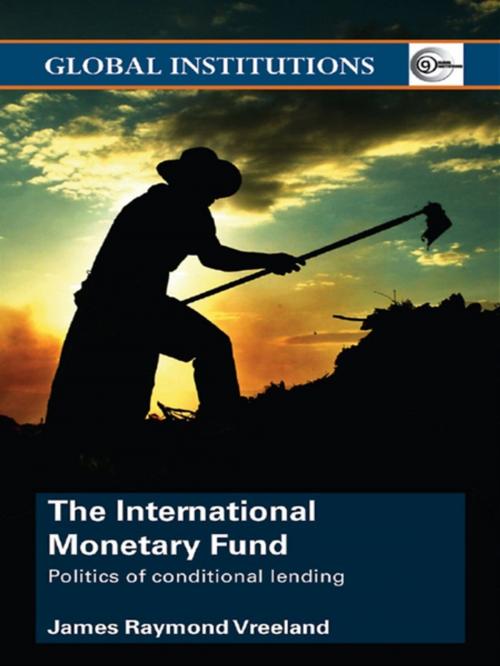The International Monetary Fund (IMF)
Politics of Conditional Lending
Nonfiction, Social & Cultural Studies, Political Science| Author: | James Raymond Vreeland | ISBN: | 9781134189526 |
| Publisher: | Taylor and Francis | Publication: | December 6, 2006 |
| Imprint: | Routledge | Language: | English |
| Author: | James Raymond Vreeland |
| ISBN: | 9781134189526 |
| Publisher: | Taylor and Francis |
| Publication: | December 6, 2006 |
| Imprint: | Routledge |
| Language: | English |
This is a clear and concise introduction to the International Monetary Fund (IMF) and an overview of its debates and controversies.
Where did the IMF come from? What does it do? Why do so many governments participate in its programs and what are their effects? How can we best reform this key global institution? These are some of the key questions addressed.
In our age of thinking global, the IMF is a crucial institution and central to understanding international relations and current affairs. Founded in the aftermath of the Second World War, its basic purposes were to facilitate world trade and promote national prosperity. The founders hoped that never again would the world experience the trade policies that led up to the Great Depression. This book outlines and questions these targets and assesses actual achievements. It also details how despite originally focusing on Europe, the Fund has gradually shifted to involvement with poorer developing countries, but to what ends and with how much success? This study both poses and tackles the tough questions facing our global community today.
This is a clear and concise introduction to the International Monetary Fund (IMF) and an overview of its debates and controversies.
Where did the IMF come from? What does it do? Why do so many governments participate in its programs and what are their effects? How can we best reform this key global institution? These are some of the key questions addressed.
In our age of thinking global, the IMF is a crucial institution and central to understanding international relations and current affairs. Founded in the aftermath of the Second World War, its basic purposes were to facilitate world trade and promote national prosperity. The founders hoped that never again would the world experience the trade policies that led up to the Great Depression. This book outlines and questions these targets and assesses actual achievements. It also details how despite originally focusing on Europe, the Fund has gradually shifted to involvement with poorer developing countries, but to what ends and with how much success? This study both poses and tackles the tough questions facing our global community today.















